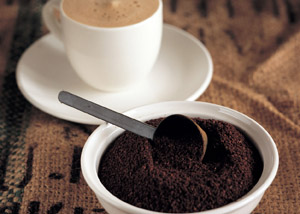The description of the Flavor of Coffee by Brazilian Cup Measurement and grading
Brazilian cup grading:
Level 1: Strictly Soft
Level 2: Soft
Level 3: Soft
Level 4: Hard
Grade 5: Rio (light iodine flavor)
Level 6: Rioy (strong iodine smell)
Grades 1-3 here are collectively referred to as "mild", sweet, bitter and sour balance, is the taste of quite warm alcohol of good quality coffee. In contrast, grades 5 and 6 are inferior grades with iodine odor. The soil around Rio de Janeiro, Brazil, has a strong iodine smell. Coffee fruits fall on these soils when harvested, and they will be attached with a unique taste.
Brazil's three-stage classification method has not been used in other countries because it is unnecessary. In other words, you don't need to "cup test" to know that the coffee has a certain quality. Brazil uses this "cup test grading method" because the origin is too large and the beans are too much. In order to prepare the coffee flavor for export, these coffee beans are often mixed and used, and therefore the quality of different cases requires "cup test" grading.
For this reason, Brazilian coffee appraisers must abide by strict requirements: in order to fully operate the taste and smell when evaluating coffee, these appraisers must not eat leeks, onions, garlic and other foods that will paralyze the tongue. Tobacco, alcohol, strong perfume and so on are also prohibited. In front of the temple, there is often a stone pillar that says "meat and wine are forbidden to enter the mountain gate". The term "meat wine" here refers to vegetables and wine with strong flavor such as leeks and shallots. Brazilian coffee judges are like Zen monks, eating vegetarian food every day.
In addition to the three classification systems mentioned above, there are also areas like Jamaica where cultivated land classification is used.
There are various ways of grading in different producing countries. It takes a little skill to remember all of them, but it is not a big deal after familiarity. In short, in a word,"high-quality coffee beans without defective beans are good beans."

Important Notice :
前街咖啡 FrontStreet Coffee has moved to new addredd:
FrontStreet Coffee Address: 315,Donghua East Road,GuangZhou
Tel:020 38364473
- Prev

The cultivation process and sowing of Coffee in Yunnan & does #160; Coffee belong to Arabica?
People often mistakenly think that coffee is grown directly with raw beans, but it takes a long time to grow coffee only to find that it doesn't sprout. In fact, coffee is grown with seeds with endocarp (Parchment). The inner fruit (or sheepskin or paper parchment) refers to the tea-brown hard skin that wraps the coffee seeds, and the coffee beans attached to that layer are called Parchment Bean. Put aside the full maturity
- Next

What are the skills of coffee roasting to test your dressing style?
The secret of baking: get the highest caramel and least carbonization. Caramelization is a link that has the greatest impact on the flavor of coffee. After baking for six to seven minutes, raw beans absorb a lot of heat, start the pyrolysis reaction, and make the first explosive sound. Some sugars are converted into carbon dioxide, and water continues to evaporate. New aromatic components gradually developed to form the so-called coffee oil, and Ni and Ni
Related
- Does Rose Summer choose Blue, Green or Red? Detailed explanation of Rose Summer Coffee plots and Classification in Panamanian Jade Manor
- What is the difference between the origin, producing area, processing plant, cooperative and manor of coffee beans?
- How fine does the espresso powder fit? how to grind the espresso?
- Sca coffee roasting degree color card coffee roasting degree 8 roasting color values what do you mean?
- The practice of lattes: how to make lattes at home
- Introduction to Indonesian Fine Coffee beans-- Java Coffee producing area of Indonesian Arabica Coffee
- How much will the flavor of light and medium roasted rose summer be expressed? What baking level is rose summer suitable for?
- Introduction to the characteristics of washing, sun-drying or wet-planing coffee commonly used in Mantenin, Indonesia
- Price characteristics of Arabica Coffee Bean Starbucks introduction to Manning Coffee Bean Taste producing area Variety Manor
- What is the authentic Yega flavor? What are the flavor characteristics of the really excellent Yejasuffi coffee beans?

